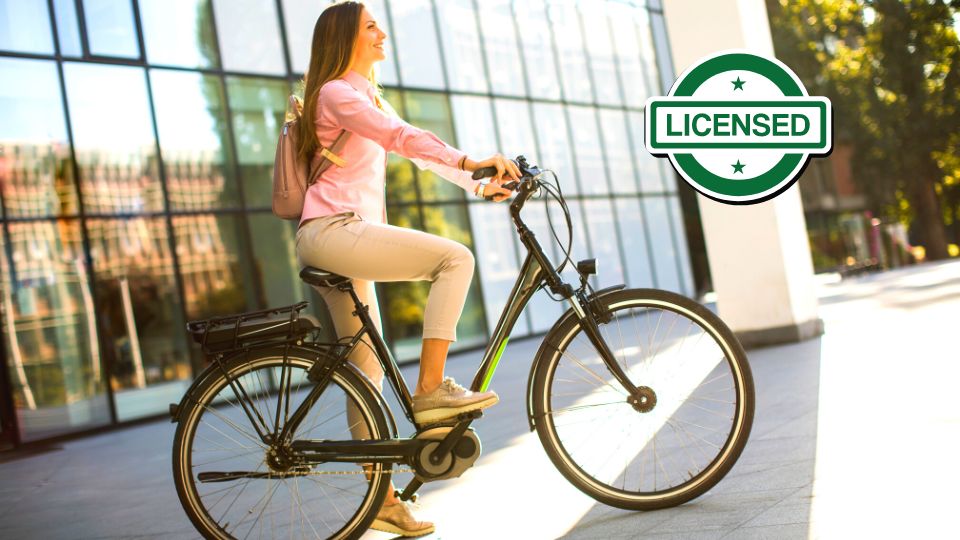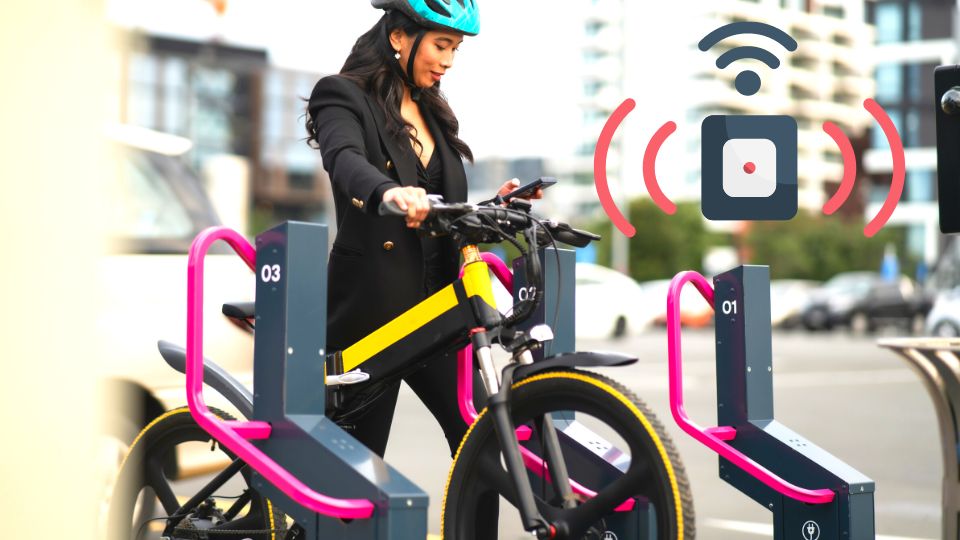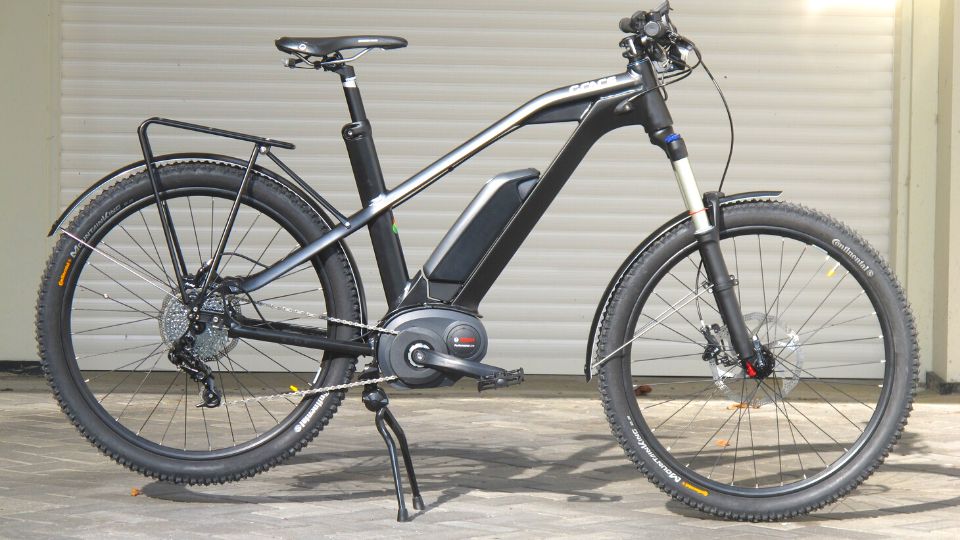Electric bikes, or e-bikes, have become increasingly popular over the years due to their convenience and eco-friendliness. However, with the rise of e-bikes, questions have arisen about the need for licenses to operate them.
Do you need a license for an e-bike? The answer depends on several factors, including the classification of the e-bike and local laws and regulations.
In this article, we will explore the different factors that determine whether or not a license is required to ride an e-bike.
Do You Need a License to Ride an E-Bike?
The answer to whether or not you need a license to ride an e-bike depends on the e-bike classification and the laws of the country or state you are in. In the United States, e-bikes are classified into three categories:
- Class 1 e-bikes: These e-bikes have a motor that provides assistance only when the rider is pedaling and stops when the bike reaches 20 mph.
- Class 2 e-bikes: These e-bikes have a motor that provides assistance even when the rider is not pedaling but stops when the bike reaches 20 mph.
- Class 3 e-bikes: These e-bikes have a motor that provides assistance only when the rider is pedaling and stops when the bike reaches 28 mph.
Licensing requirements for e-bikes also vary by state. In some states, e-bikes are treated like traditional bicycles and don’t require a license or registration. In other states, e-bikes are considered motorized vehicles and require a driver’s license or special license to operate. It’s important to check the laws in your state before riding an e-bike to ensure you are compliant with local regulations.
Proper maintenance is key to keeping your electric bike in good condition and roadworthy. If you’re curious about the costs associated with servicing an electric bike, our article on the topic might be of interest to you.
What Defines an eBike in the USA?
In the USA, an electric bicycle is defined as a bicycle that is equipped with a motor that provides assistance to the rider’s pedaling. This assistance must cut off when the bike reaches a speed of 20 mph. Electric bicycles are also commonly known as e-bikes.
In 2002, the US Congress passed the Consumer Product Safety Act (CPSA), which established a federal definition for electric bicycles. According to the CPSA, an electric bicycle is considered a consumer product and is subject to the same safety standards as traditional bicycles.
Electric bicycles in the USA are classified into three categories based on the amount of assistance provided by the motor. Each class of e-bike is subject to different regulations in different states. In some states, e-bikes are treated like traditional bicycles and don’t require a license or registration. In other states, e-bikes are considered motorized vehicles and require a driver’s license or special license to operate. Additionally, some states may have age restrictions or safety equipment requirements for e-bike riders.
E-Bike Laws and Regulations
E-bike laws and regulations vary by country. In some countries, e-bikes are treated like traditional bicycles and don’t require a license or registration. In other countries, e-bikes are considered motorized vehicles and require a driver’s license or special license to operate. Some countries may also have speed limits or age restrictions for e-bike riders.
In Europe, e-bikes are subject to the EU’s Pedelec regulations, which classify e-bikes based on their maximum motor power output and maximum assisted speed. These regulations require e-bikes to have a maximum power output of 250 watts and to assist the rider only up to 25 km/h.
In Canada, e-bikes are regulated by the Canadian Motor Vehicle Safety Regulations, which classify e-bikes as power-assisted bicycles. E-bikes are required to have a maximum power output of 500 watts and must not exceed a speed of 32 km/h.
E-Bike Laws and Regulations in the United States
E-bike laws and regulations in the United States may vary by state. In some states, e-bikes are treated like traditional bicycles and don’t require a license or registration. In other states, e-bikes are considered motorized vehicles and require a driver’s license or special license to operate. Additionally, some states may have age restrictions or safety equipment requirements for e-bike riders.
In 2015, the United States Congress passed the Fixing America’s Surface Transportation (FAST) Act, which clarified the classification of e-bikes at the federal level. The FAST Act defines e-bikes as “low-speed electric bicycles” and requires states to adopt a consistent definition for e-bikes based on the three classification categories mentioned earlier. States are also required to treat e-bikes that meet the federal definition as bicycles for the purposes of traffic laws and regulations.
Benefits of Having a License for an E-Bike
Many people are not aware that having a license for an e-bike can provide several benefits. Let’s see the advantages of having a license for an e-bike.
Increased Safety
Having a license for an e-bike may increase safety for the rider and others on the road. Obtaining a license requires the rider to undergo training and education on how to operate an e-bike safely. This can help to reduce accidents and injuries caused by inexperienced riders.
Additionally, having a license means that the rider is aware of traffic laws and regulations and knows how to operate the e-bike in compliance with these laws. This can help to prevent accidents and ensure that the rider and others on the road are safe.
If you’re looking to improve your electric bike’s braking system, our article on eBike hydraulic brake sensors can provide some insights into the issue.
Expanded Riding Opportunities
Having a license may also expand where and when you can ride an e-bike. In some states or regions, e-bikes are not allowed on certain roads or bike paths unless the rider has a license. By obtaining a license, the rider may be able to access more areas and paths, expanding their opportunities for riding.
Furthermore, some employers or rental services may require a license to operate an e-bike. By having a license, the rider can access these opportunities and potentially increase their job prospects or rental options.
Peace of Mind
Having a license for an e-bike can provide peace of mind for the rider. They can ride knowing that they have the necessary knowledge and skills to operate the e-bike safely and in compliance with traffic laws and regulations. This can help to reduce stress and anxiety when riding, allowing the rider to enjoy the experience more.
Additionally, having a license can protect the rider legally. If the rider is involved in an accident or other legal issue, having a license may provide a defense against liability and potential legal repercussions.
FAQs
Do you need a license for an electric bike in New York?
Class 1 and Class 2 e-bikes can generally be ridden anywhere that traditional bicycles are allowed, such as on roads, bike lanes, and bike paths. However, Class 3 e-bikes may be restricted in certain areas, such as bike paths, depending on local laws and regulations. It’s always a good idea to check with local authorities to confirm the specific laws and regulations in your area before riding an e-bike.
Can a 13 year old ride an electric bike?
Note that e-bike laws and regulations may vary by state or country. In some places, there may be age restrictions on e-bike riders, regardless of the classification of the e-bike. For example, Class 3 e-bikes in California are considered “motorized bicycles” and require riders to be at least 16 years old and have a driver’s license, registration, and insurance.
Do I need a driver’s license to ride an electric bike in Florida?
In Florida, you do not need a driver’s license to ride an electric bike that meets the state’s definition of an electric bicycle, but you have to be at least 16 years old.
Conclusion
In conclusion, the answer to whether or not you need a license for an e-bike depends on several factors, such as the classification of the e-bike and local laws and regulations. Generally speaking, if your e-bike falls under the definition of a bicycle and meets certain criteria, such as a maximum speed limit and motor power output, you may not need a license to ride it.
However, if your e-bike exceeds these limits, you may need a license to operate it on public roads. It’s important to review local laws and regulations to ensure that you are riding in compliance with the rules and staying safe on the road.






